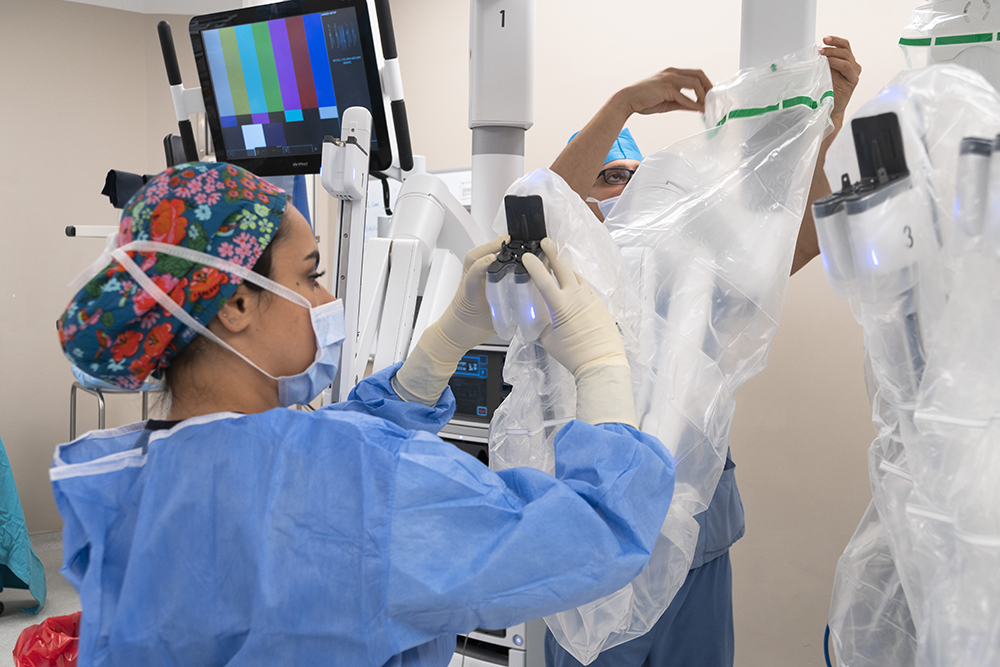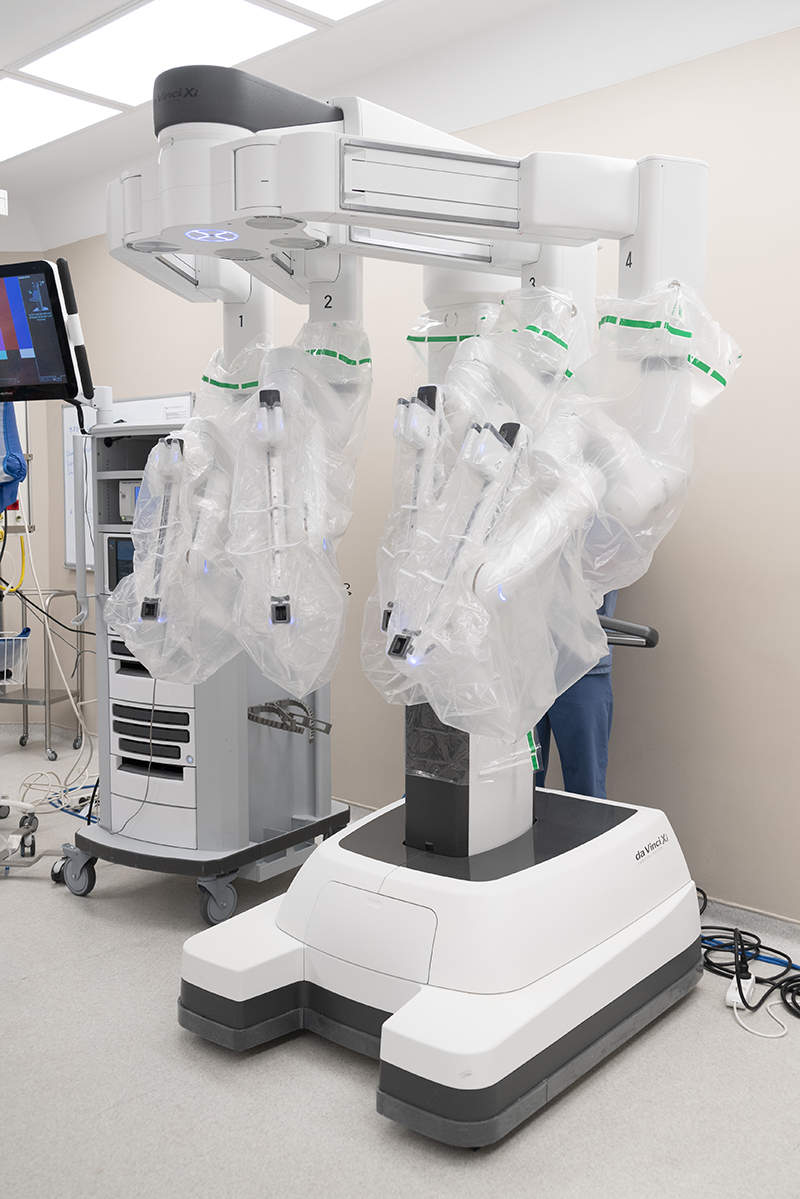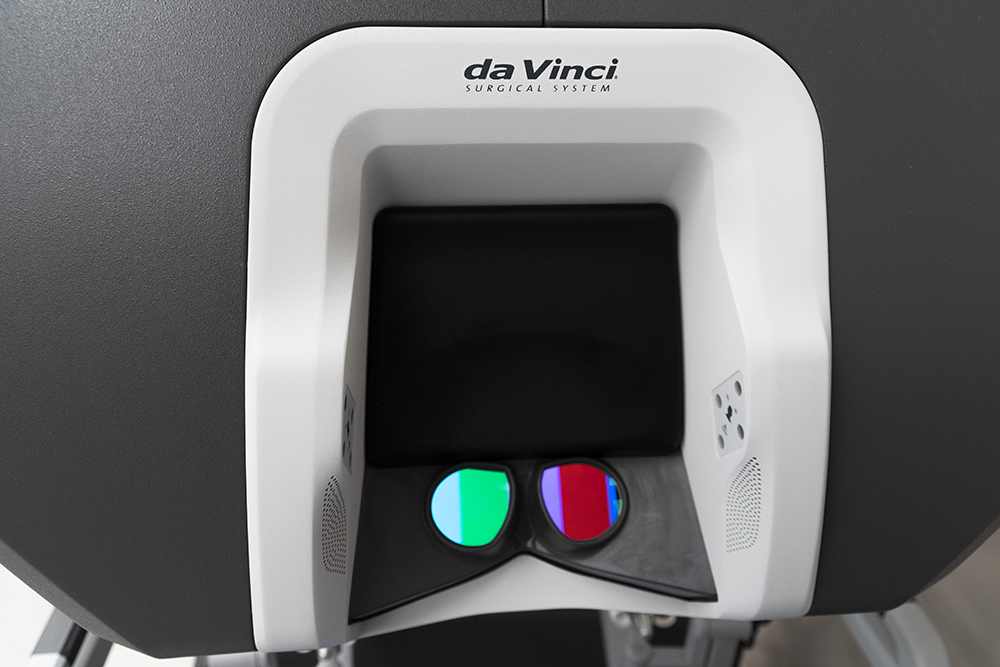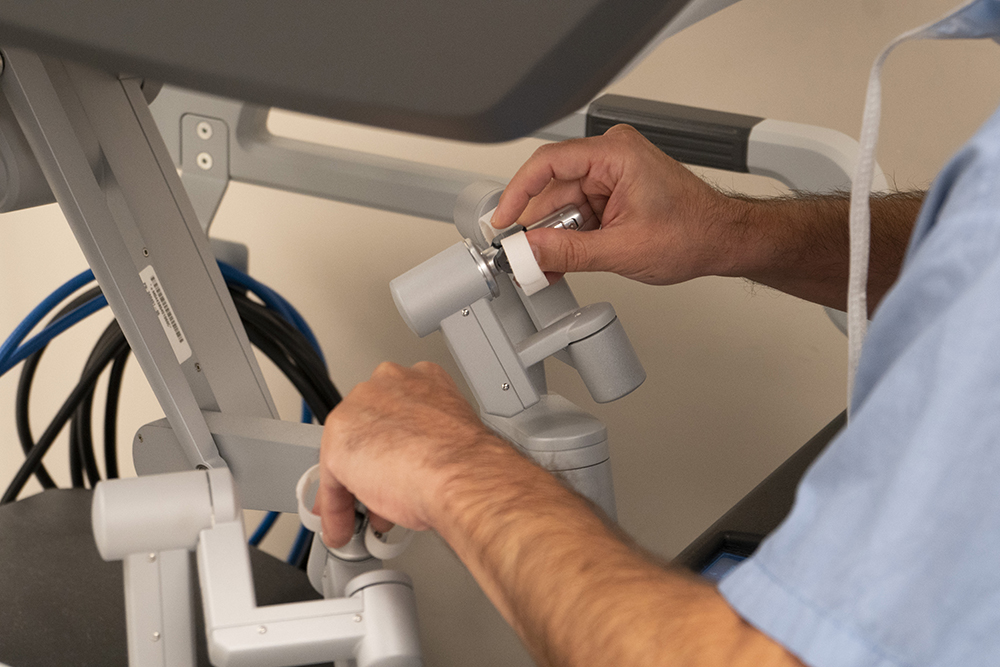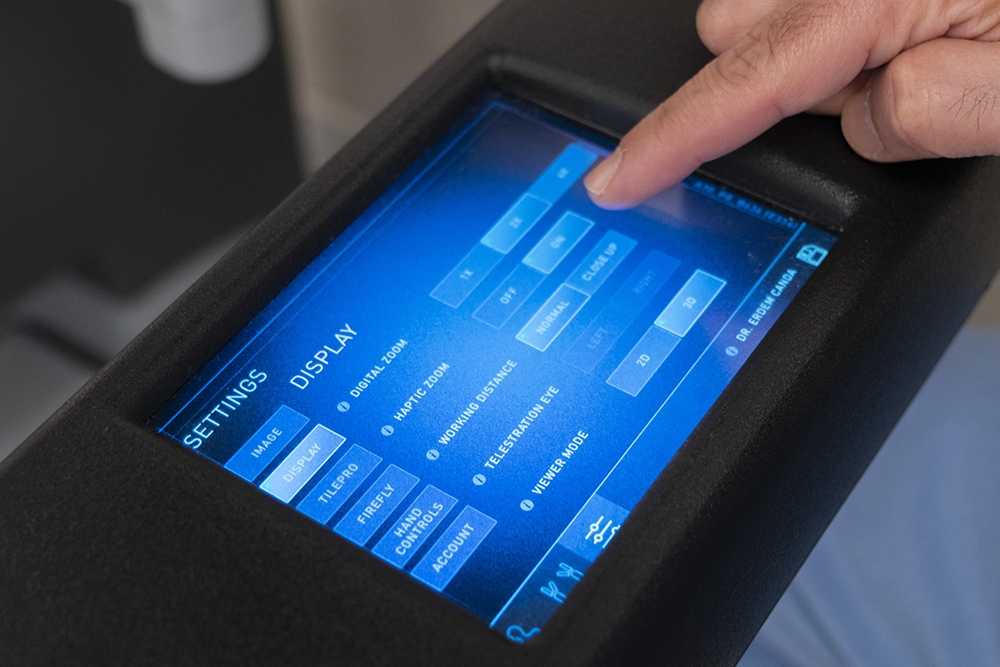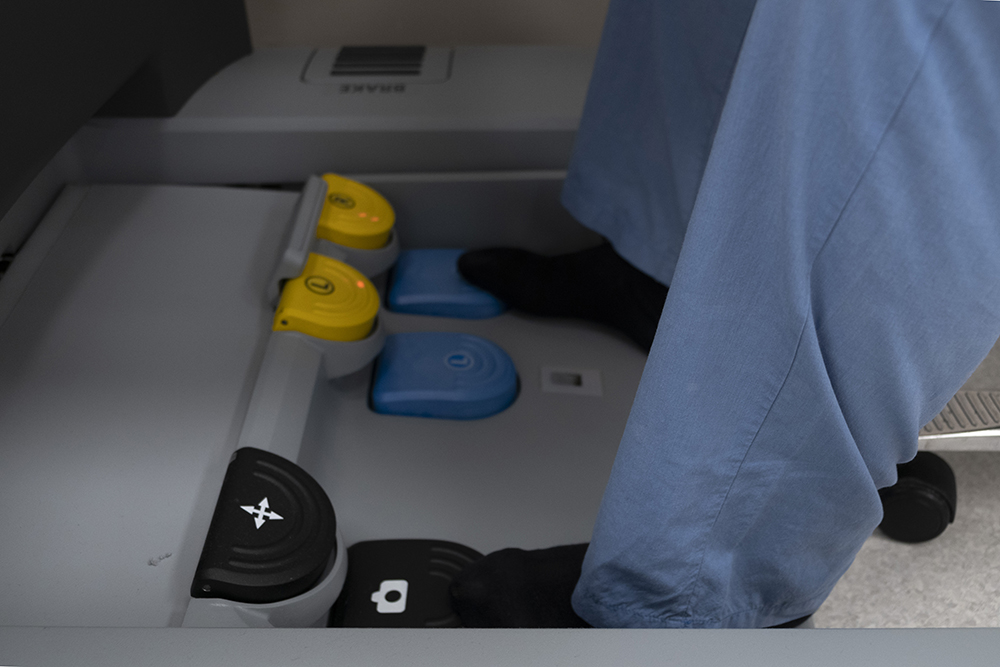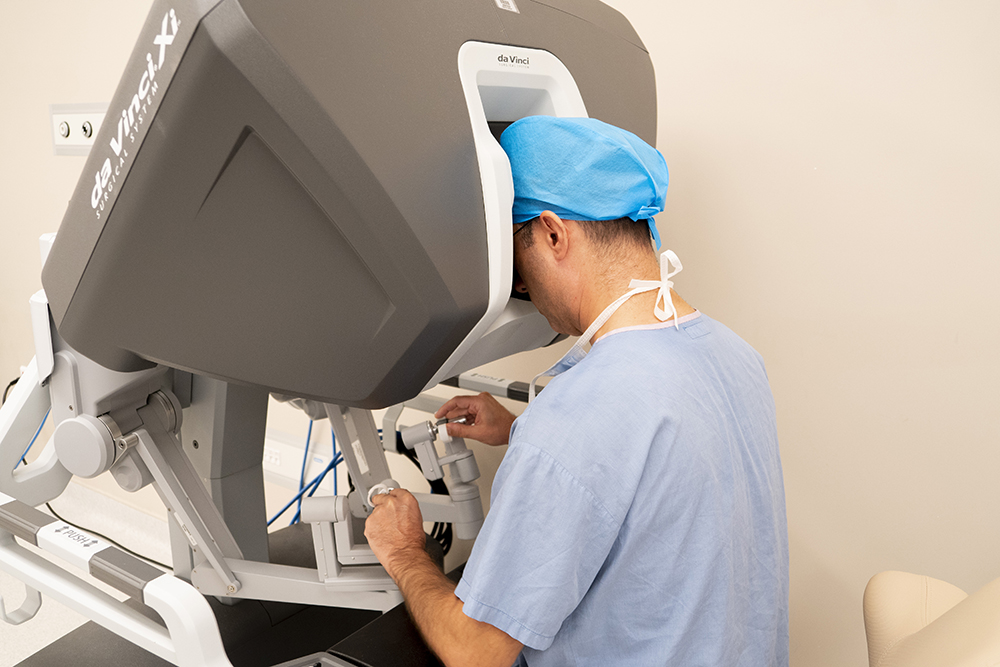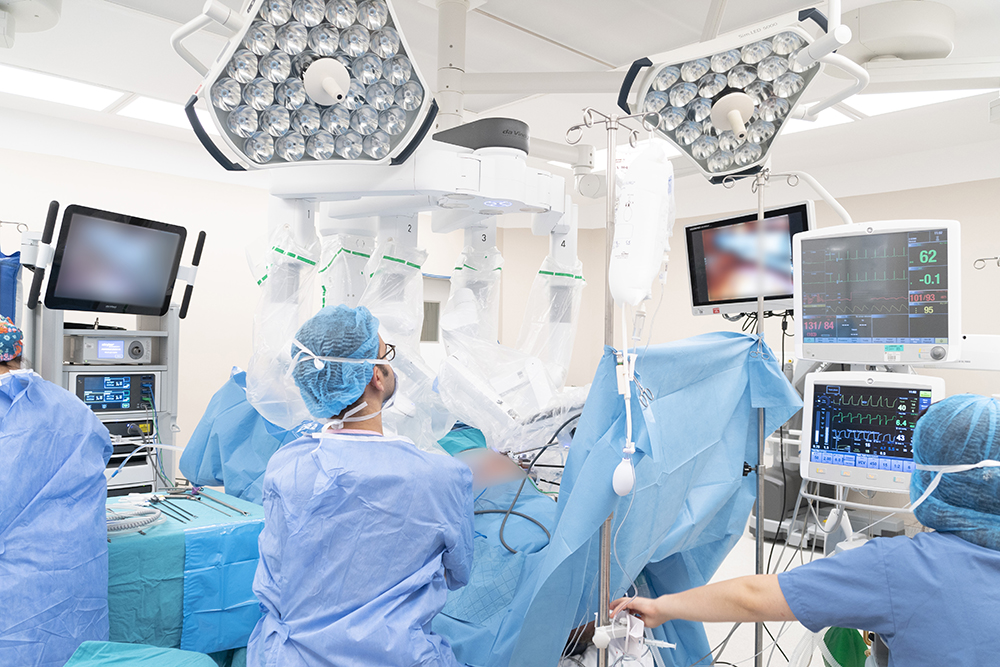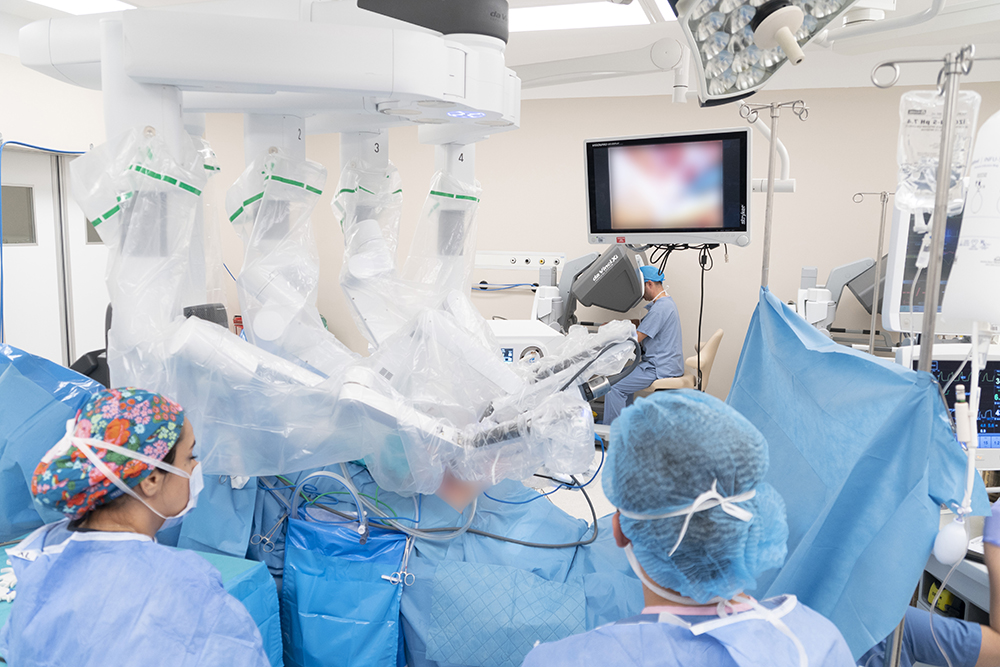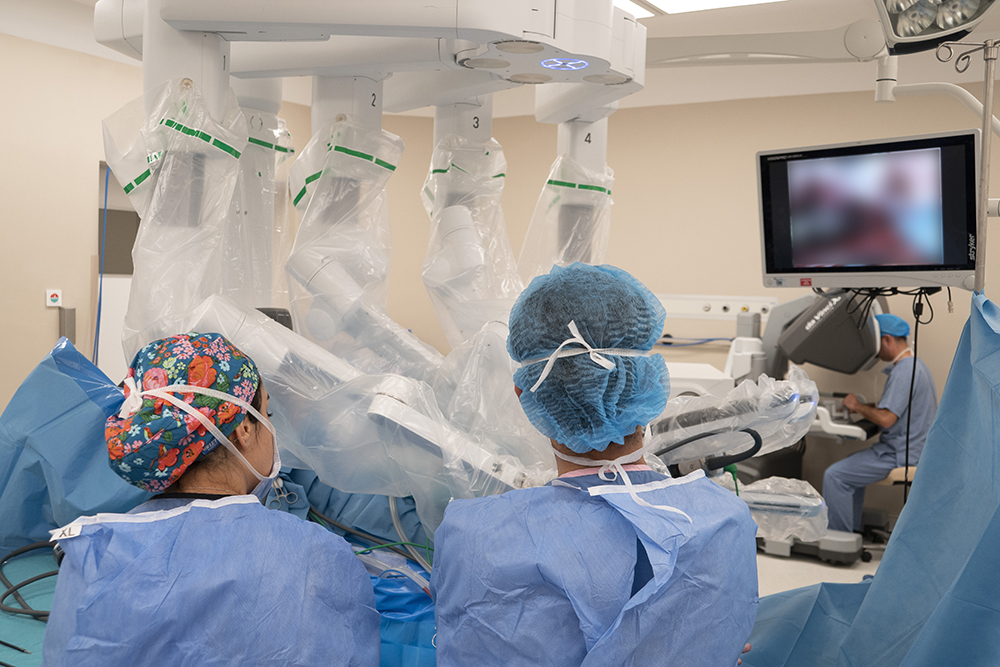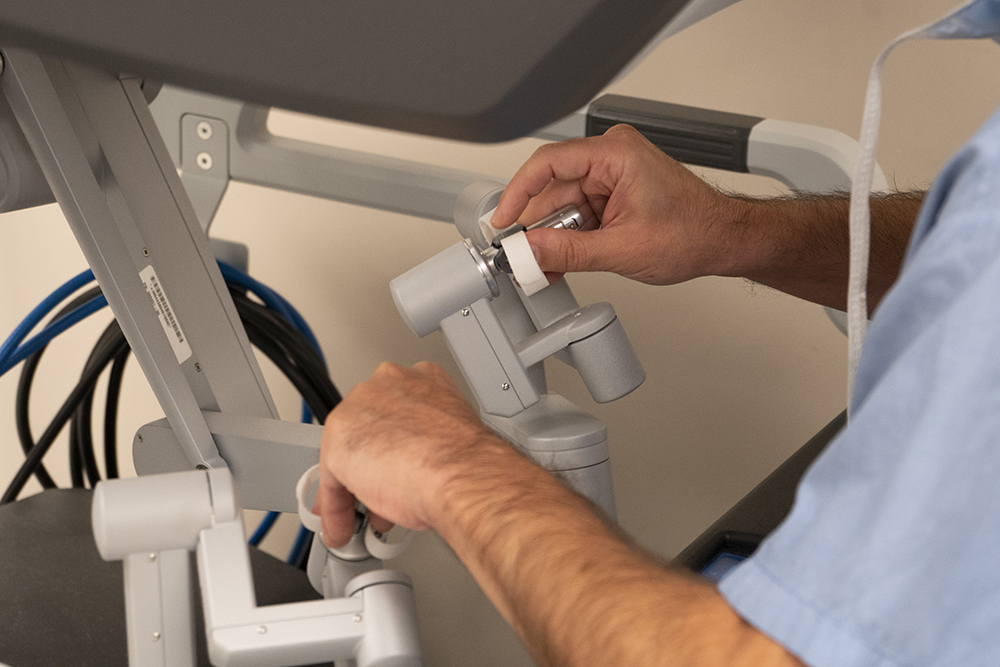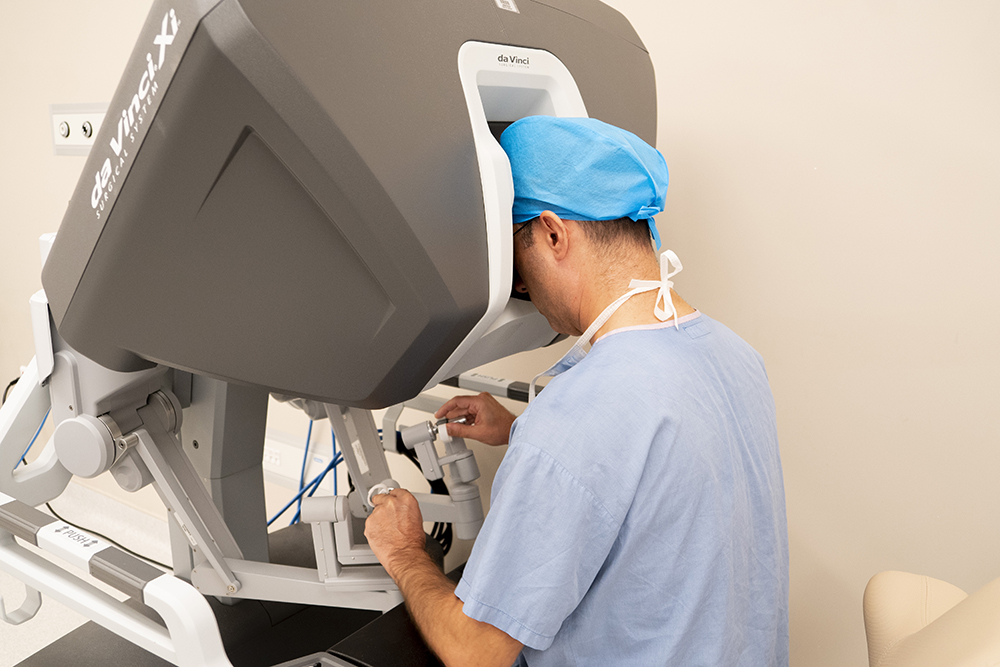Koç University Hospital Department of Urology has been appointed as ERUS Robotic Surgery Training Center starting from 11 December 2019 for a 5-year period (ERUS: European Association of Urology Robotic Urology Section).

Robotic prostate cancer and prostate surgery:
*Robotic radical prostatectomy with pelvic lymph node dissection with classical technique or Martini Klinik neurosafe technique (ICG application is used in selected cases)
*Robotic prostate adenemectomy in BPH
Renal/kidney masses/cancers and upper urinary tract robotic surgery:
*Robotic partial nephrectomy (zero ischemia and ICG application in selected cases)
*Robotic nephroureterectomy with bladder cuff excision
*Robotic adrenalectomy
*Robotic pyeloplasty (in UPJ obstruction)
Robotic bladder cancer surgery:
*Robotic radical cystectomy with intracorporeal urinary diversion (ileal loop and neobladder/Studer pouch)
Robotik pyeloplasty:
In UP junction obstruction
Robotic adrenalectomy:
In adrenal gland masses and tumors
Da Vinci xi dual console surgical robot







